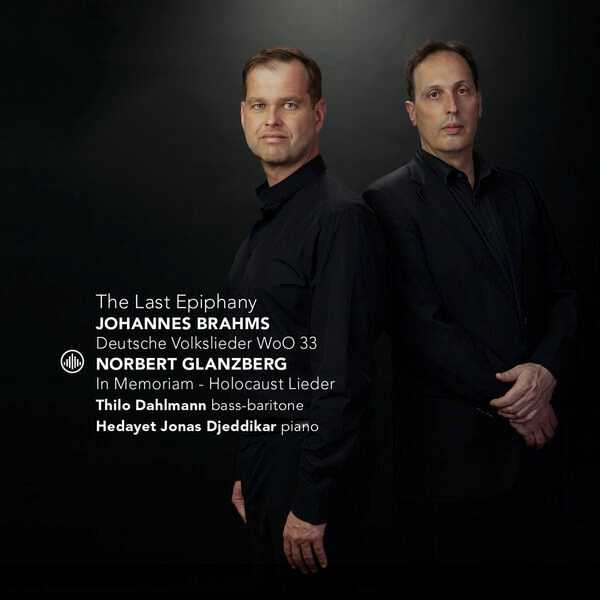
Composer: Johannes Brahms, Norbert Glanzberg, Franz Peter Schubert
Performer: Hedayet Djeddikar, Thilo Dahlmann
Format: FLAC (tracks)
Label: Challenge Classics
Catalogue: CC72934
Release: 2023
Size: 275 MB
Recovery: +3%
Scan: cover
Brahms: Die schöne Magelone, Op. 33
01. No. 30, All mein Gedanken
02. No. 25, Mein Mädel hat einen Rosenmund
03. No. 12, Feinsliebchen
04. No. 11, Jungfräulein, soll ich mit Euch gehen
05. No. 5, Die Sonne scheint nicht mehr
06. No. 2, Erlaube mir, feins Mädchen
07. No. 1, Sagt mir, o schönste Schäf´rin mein
08. No. 41, Es steht ein Lind´
09. No. 3, Gar lieblich hat sich gesellet
10. No. 3, Sonntag, Op. 47
11. No. 16, Wach auf, Mein´ Herzensschöne
12. No. 36, Es wohnet ein Fiedler zu Frankfurt am Main
13. No. 42, In stiller Nacht
14. No. 17, Ach Gott, wie weh tut scheiden
15. No. 35, Soll sich der Mond nicht heller scheinen
16. No. 6, Da unten im Tale
Glanzberg: In Memoriam
17. No. 1, Im Gefängnis
18. No. 2, Abschied
19. No. 3, Fur Ule
20. No. 4, Alter Baum
21. No. 5, Nachtgedanken
22. No. 6, Der Ofen von Lublin
23. No. 7, Versprich mir eins
24. No. 8, Die letzte Epiphanie
25. No. 9, Lied zur guten Nacht
26. No. 10, Greta
27. No. 11, An die Völker der Erde
28. Schubert: Abendstern, D806
Baritone Thilo Dahlmann couples the innocence and beauty of Brahms’ Volkslieder with the the despair and mourning of Glanzberg’s Holocaust Lieder.
Thilo Dahlmann and Hedayet Djeddikar. “I sow, I see no seed, and I remain mournfully silent at home.” With these words of Johann Mayerhofer full of mourning and melancholy from Schubert’s “Abendstern”, we as performers look back on the content of this CD. It juxtaposes compositions that could hardly be more opposite. The past century, like so many before and after it, has not only sown good seeds. Norbert Glanzberg had to experience one of the greatest human catastrophes of the century himself, the Holocaust. Long after the end of the war, he managed to clothe the horror he suffered in music through the words of other persecutees and victims of National Socialism. Music that could not be more beautiful in many places. A beauty that is only painful to bear in view of the texts set to music.
In selecting the pieces for this recording, we were guided by Norbert Glanzberg’s compositional approach of countering horror with beauty. Therefore, folk song settings by Johannes Brahms form the beginning of this CD. Songs that, like few other songs in the Romantic lied repertoire, can embody the greatest possible innocence and impartiality in text and music.
It is precisely this contrast that illustrates in our eyes the breaking of human and civilisational culture through the horrors of the Holocaust. A “break-up” that Norbert Glanzberg has masterfully set to music in his cycle “In Memoriam”.



